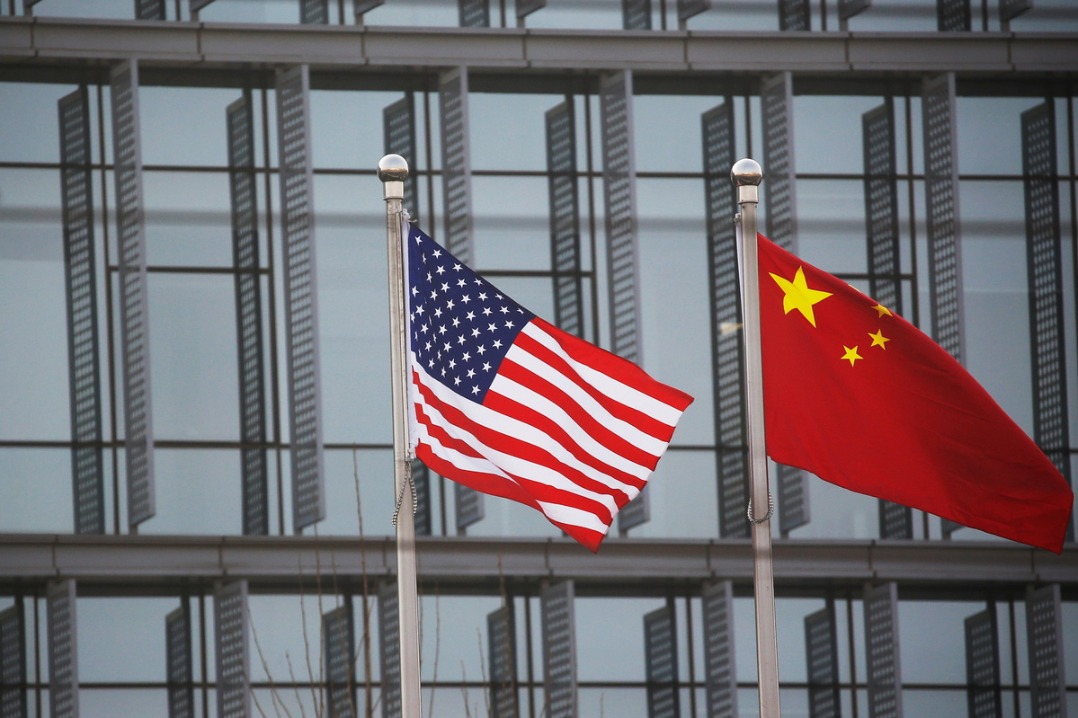China ready to meet challenges of Trump era


The meeting between Chinese President Xi Jinping and US President Joe Biden on Nov 16 has set a crucial stage for the future of China-US relations. As the world's two largest economies navigated through fraught dynamics during Biden's tenure, this meeting offered a glimpse into their intentions for shaping global stability. Both leaders expressed optimism about trade cooperation and the fight against climate change, though significant disagreements on the Taiwan question and technology transfers were apparent.
The outcomes of this meeting underscore the complex interdependence between the United States and China. Biden aims to leave office with a stable bilateral relationship — though his actions contradicted this purpose — but the return of Donald Trump to the White House as the 47th president of the US creates new uncertainties for global geopolitics, particularly concerning China.
A hawkish stance toward China marked Trump's first term as US president. Trump has emphasized the importance of reducing trade imbalances, addressing intellectual property rights concerns and countering China's growing global influence, and his "America first" strategy, defined by economic nationalism and strategic competition, could intensify tensions between the two countries.
Trump's likely focus on domestic priorities — such as re-industrialization and reshoring manufacturing — may restrict his capacity to engage in multilateral diplomacy. This could lead to a more unilateral and selective approach to foreign engagements, creating a power vacuum in global governance.
However, his transactional approach to international relations could lead to unpredictable engagements with China, ranging from escalated economic decoupling to selective cooperation on issues such as Korean Peninsula denuclearization issue or supply chain stability. This shift in US foreign policy under Trump may present opportunities for other global players, particularly the BRICS-Plus bloc, to play a bigger role in global affairs. The potential impact of Trump's policies on US-China relations could lead to a more confrontational approach, creating more opportunities for BRICS-Plus to expand its influence.
As US-China relations face renewed volatility, BRICS-Plus has an opportunity to position itself as a stabilizing force in a fragmented world. The bloc's capacity to provide alternative frameworks for development and cooperation makes it uniquely suited to address the Global South's ever-growing needs, including economic development, infrastructure improvement and sustainable growth.
The group's economic agenda, including the China-proposed Belt and Road Initiative and Brazil's expertise in agricultural innovation, could help address critical challenges such as food security and sustainable infrastructure development across Africa and Asia, one of the main issues raised in the last G20 Summit in Rio de Janeiro.
Furthermore, the potential de-dollarization of the global economy — driven by China's economic policy and ongoing initiatives within BRICS-Plus — signals a shift away from the long-standing dominance of the US dollar. This transformation could empower emerging economies to pursue development models independent of Western financial systems.
BRICS-Plus can seize the opportunity to advocate for significant reforms in key international organizations such as the United Nations, the World Bank and the International Monetary Fund. By championing multipolarism and localized solutions, the bloc could inspire greater autonomy and resilience among its member states and partners, leading to a more equitable and diversified global order.
This era of uncertainty offers BRICS-Plus the opportunity to redefine the Global South's role in global governance. With its potential to establish itself as a credible alternative to the US-led world order, the bloc can inspire hope and optimism through initiatives focusing on trade liberalization, regional integration and sustainable development. Such efforts would enhance economic growth and address pressing global challenges such as climate change, digital inclusion and infrastructure deficits, instilling a sense of hope for a better future.
The meeting between Xi and Biden has underscored the urgent need for pragmatism and cooperation in addressing the world's pressing challenges. As Trump prepares to take office, his policies will undoubtedly reshape US-China relations, creating challenges and opportunities for the international community. BRICS-Plus, with its collective economic strength and a shared vision for a fairer world, holds the potential to lead the way in this new era of global transformation, inspiring and motivating the international community to act swiftly and decisively.
Finally, it is important to stress that the widespread flawed concept of the "Thucydides trap", a term used to describe the likelihood of conflict when a rising power challenges an established power, while provocative, needs to be revised when applied to China. This concept needs to consider the rich nuances of Chinese history and its historical commitment to peaceful coexistence.
Unlike the Western tradition of zero-sum power struggles, China's historical approach to international relations has often emphasized the importance of harmony, balance and mutual benefit. A long history of 18 centuries as one of the world's largest economy shows a country not imposing its military power on other countries in the way Western powers have historically done. China has traditionally been a center of gravity for neighboring states through cultural and economic influence.
Projecting a Western historical pattern onto a fundamentally different civilization ignores China's long commitment to resolving power transitions through diplomacy and strategic accommodation. China's rise is a clear testament to its will to pursue peace, prosperity and stability, not a new Cold War. BRICS-Plus will follow the same commitment, and the new administration in Washington must keep that in mind when shaping its policies.
The author is a visiting professor at China Foreign Affairs University and a senior fellow at the Policy Centre for the New South.
The views don't necessarily represent those of China Daily.
If you have a specific expertise, or would like to share your thought about our stories, then send us your writings at opinion@chinadaily.com.cn, and comment@chinadaily.com.cn.

































